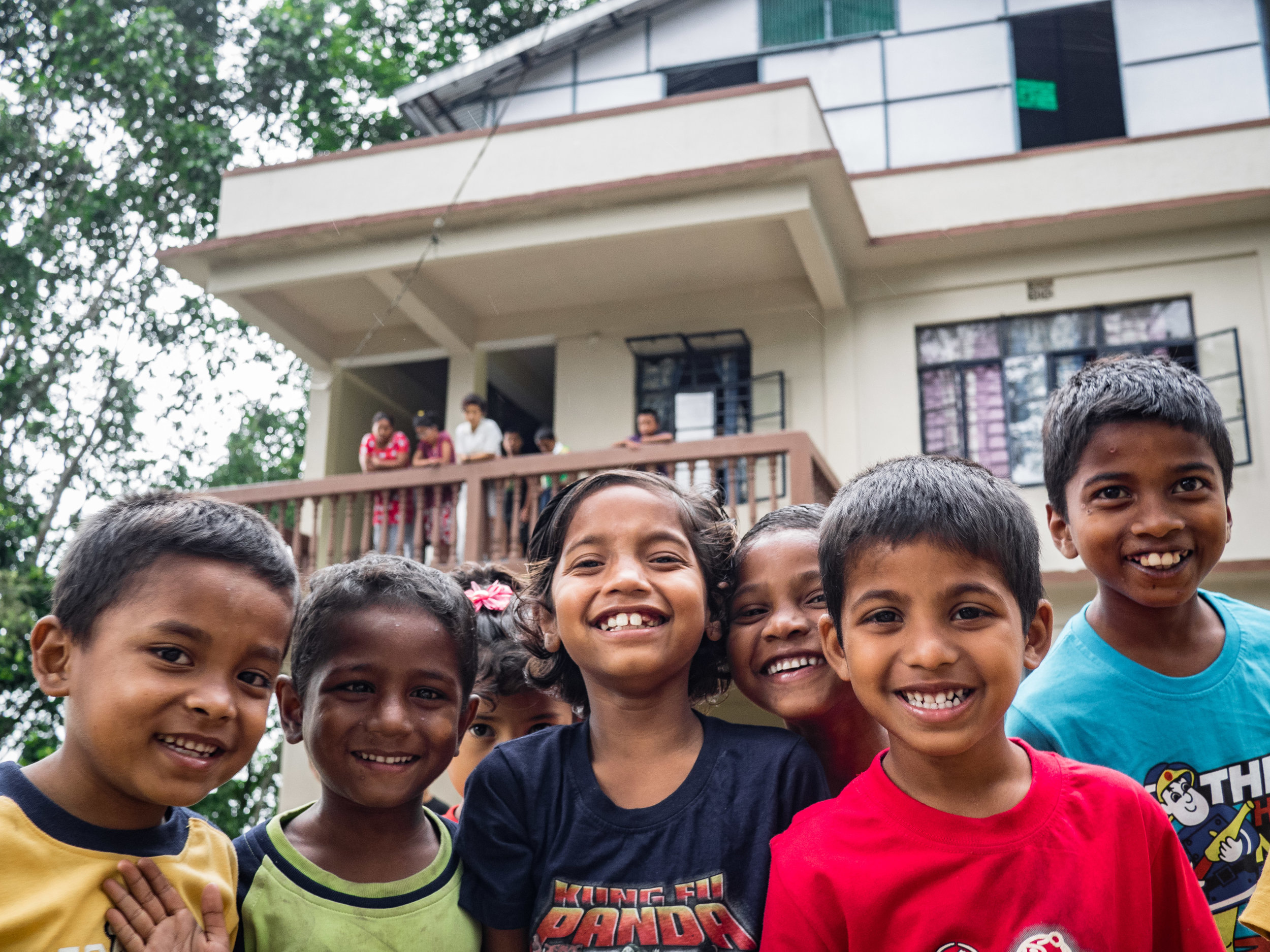Is it ever okay to visit an orphanage in the developing world?
By John McCollum, Executive Director, Asia’s Hope
A visit to Phnom Penh, Cambodia’s capital city is an assault not only on the senses, but on the emotions.
Thirty years after being completely devastated by the genocidal Khmer Rouge regime, the roiling metropolis is once again filled with culture and commerce. As in many large cities in the developing world, the gap between rich and poor in Phnom Penh is jarring: emaciated street children, amputees and the elderly beg for pennies outside exclusive night clubs and swanky hotels.
Spend much time at all in a place like Phnom Penh and you’ll be asked if you’d like to visit an orphanage before leaving town. Many tourists find this opportunity irresistible: they get to “step out of their comfort zone, ” “expand their horizons, ” and maybe even make a difference in the lives of some needy kids by donating a bit of money.
Dubbed “orphan tourism” by many child advocacy groups, this practice is widely and appropriately condemned. Children—especially orphaned and traumatized children—should never be used as tourist attractions. Giving foreign visitors unfettered access to orphanages is a child protection nightmare; it violates a child’s right to privacy and undermines their ability to bond to their primary caregivers.
According to Phnom Penh-based ChildSafe, “many orphanages rely almost entirely on donations from visitors to survive. Thus directors may purposefully maintain poor living conditions for children to secure funds from tourists…by visiting orphanages and making a donation, you may be fueling a system that exploits children.”
John McCollum is the co-founder and executive director of Asia's Hope. He and his wife Kori have adopted three children; two internationally, one domestically.
Most of us would agree that this kind of “orphanage tourism” can be exploitative. But what about other kinds of trips and other kinds of orphanages? Can, for instance, a church in strategic partnership with an international orphan care organization send a team to see the project and meet the kids?
Some say that a visit by a Westerner to a developing-world orphanage is inherently exploitative and should never be allowed. But that view is problematic, especially for globally-minded Christians. How can we in the Western church ever become longterm advocates for our our brothers and sisters caring for orphaned children if we can never meet them, never see them and never hear their stories? How can we help real people if we can only view them in the abstract?
We should be concerned
It’s right to be concerned about visits to orphanages. Orphaned kids are some of the world’s most vulnerable people. Many of these kids have spent their early years in a constant state of chaos. They’re suffering from PTSD, attachment disorders and other challenges that may be aggravated by a steady stream of visits from people they don’t know and who they may never see again.
And while it’s true that many effective aid and development initiatives would never have been established if their founders had not been able to participate in short term missions trips, we have to recognize that visits to orphanages are different. We need to be very careful anytime we permit access to children whose greatest developmental need is permanency and attachment to their primary caregivers.
Getting it right
Not all visits to orphanages are exploitative or harmful. Many orphans have been profoundly blessed by people whose visits have produced a long-term commitment to provide advocacy and financial support. But there are some general principles that one should keep in mind when evaluating an opportunity to visit an orphanage:
1. Visit only reputable, well-run organizations that put children first.
Make sure that you are not reinforcing bad funding or care models. It’s tempting to look for organizations that put as few restrictions on you as possible. If you find that the group you’re visiting never tells you “no, ” you can be pretty sure that they’re putting your needs above those of the children in their care. Any reputable organization will have clear, consistently-enforced child protection policies — if it’s easy for you to get in, it’s also easy for people with impure motives to visit as well.
At Asia’s Hope, we were so concerned about the potential risks to our children that we decided to de-link trip funds from our normal operating funds. We neither “mark up” trip expenses nor rely on trips for any portion of our normal operating budgets. We don’t want to feel pressure to schedule a certain number of trips to pay our bills. If we judge that the children are being adversely affected by the number or frequency of visits, we don’t ever have to choose between telling a potential visitor “no” and meeting our financial goals.
Not all visits to an orphanage are inherently harmful. By asking the right questions of yourself and the the organization you're hoping to visit, you can make sure that your presence is helping, not hurting, the children you seek to bless.
You can help Asia's Hope develop new, improved models of residential care for orphaned kids. Give now or contact us today to explore partnership opportunities.
2. Prioritize trips that are connected to long-term relationships, not one-off funding or service opportunities.
If you’re visiting an orphanage because you’re considering becoming a lifelong advocate for orphans, the poor and the organizations that care for them, God bless you! You’re traveling with the right motives. If you’re looking for an adventure, hoping to “expand your horizons, ” or have just always wanted to “love on” orphans, you should think twice.
3. Never go to fill an empty space in your own heart.
Any interaction with an orphaned child should serve to reinforce connection and attachment to their new permanent caregivers. You can never be a mommy or a daddy to a child living in an orphanage. If you encourage a child to look to you as a primary source of love and affection, you will not only break their heart when you leave, you may significantly damage their ability to bond with the people who will provide for them on a day-to-day basis. If you’re going with the right motives and in support of the right kind of organization, you can expect to be blessed, encouraged and challenged by any ministry trip. But—especially when dealing with vulnerable kids—it can never be about you.
4. Ask whether your money would be better spent simply giving to the organization.
If this trip represents the beginning of a journey toward advocacy and generosity, it could be great, as it will likely bring greater resources to bear on the issues than those required to pay your way. But if this trip represents the entirety of your ministry to the poor, consider just donating the money.
5. Understand that there is a cost, not just a benefit to your visit.
As a Westerner, it’s easy to buy into the subtly racist notion that our direct participation in overseas ministry represents an unmitigated benefit to my non-Western brothers and sisters. The truth is that your presence, regardless of the good it brings, also comes at a cost. The construction team your church sends may be robbing local workers of the opportunity to make a decent living. Your preaching at a church in India may be communicating to local communities the inferiority of indigenous leaders. The hugs you receive at an orphanage may diminish or delay a child’s attachment to a local caregiver. The gifts you bring may undermine the role of the home parents to be embraced by a child as their primary advocate and provider.
We should all agree that treating children as tourist attractions is exploitative and harmful. But we must also recognize that orphaned children and their caregivers need long-term advocates, and that informed advocacy and responsible ministry must be based on personal relationships. By committing to always put an orphan’s need for a healthy childhood above our desire for a meaningful missions experience, we can navigate the tension and help without hurting.
Contact John by email john@asiashope.org or at 614.804.6233



